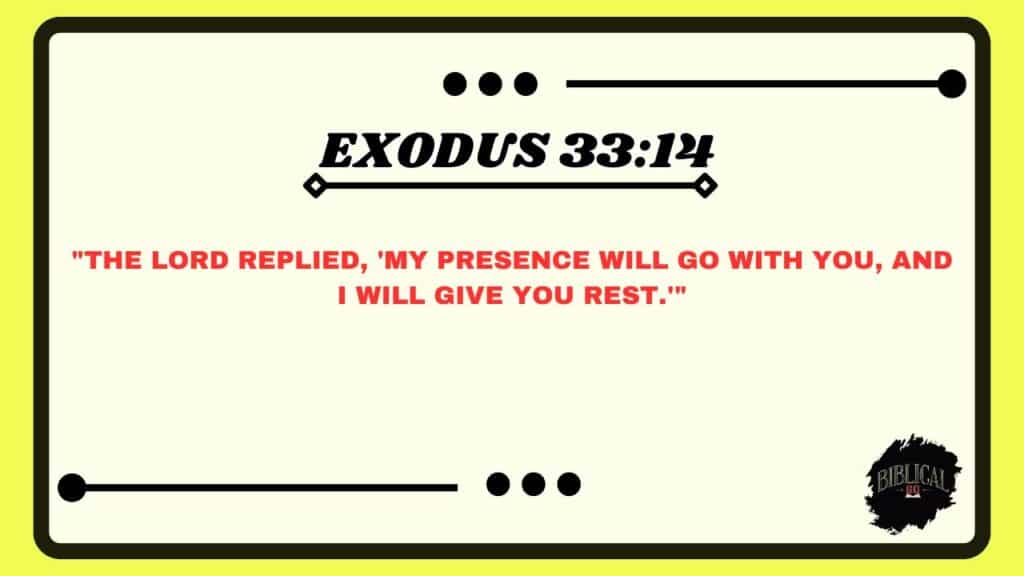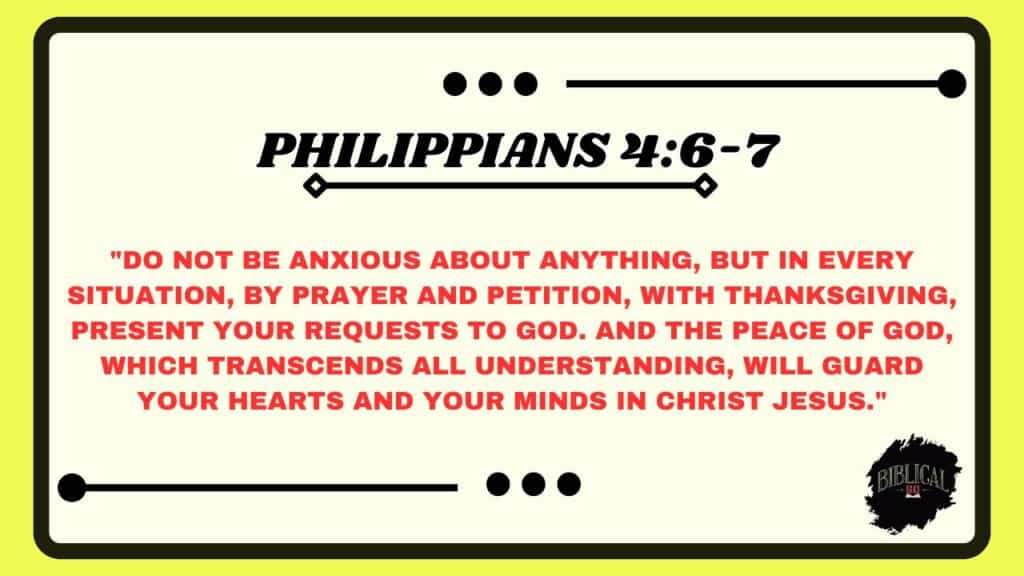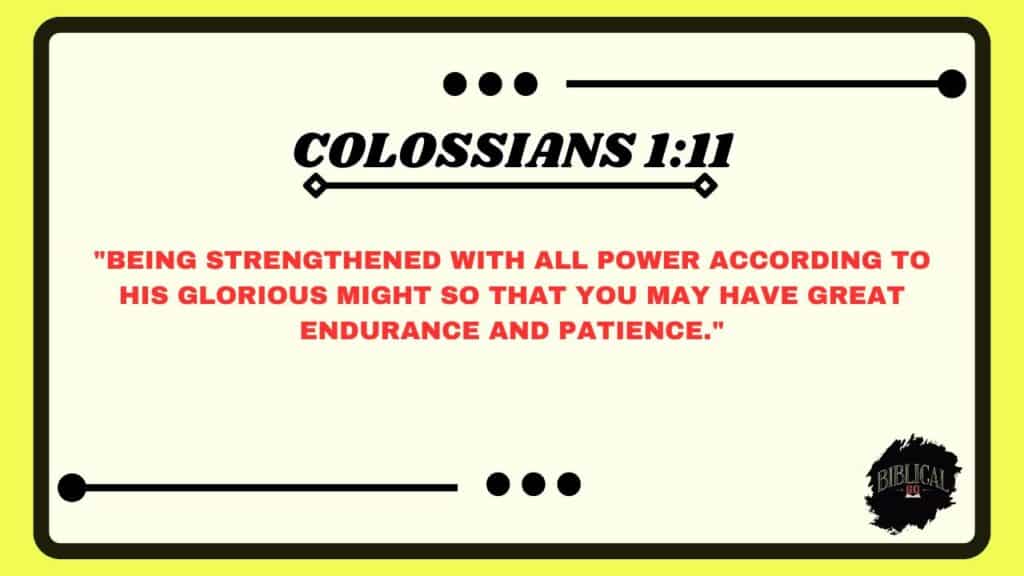Bible Verses About Being Tired: Life can be exhausting. Between work demands, family responsibilities, health challenges, and the general pace of modern living, fatigue is a universal human experience. If you’re feeling worn out and weary, you’re not alone and the Bible has much to say about tiredness, rest, and renewal.
Scripture acknowledges our human limitations while pointing us toward a divine source of strength. The Bible doesn’t shame us for being tired; instead, it offers comfort, perspective, and the promise of supernatural refreshment that goes beyond what mere physical rest can provide.
God’s Word speaks directly to our exhausted hearts, reminding us that even Jesus experienced fatigue during His earthly ministry, yet found renewal through communion with the Father. These verses about tiredness reveal God’s compassion for our weary souls and His invitation to find rest in Him.
Also Read: 36 Bible Verses About Manifestation
Physical Exhaustion and God’s Provision
1. Matthew 11:28-30
“Come to me, all you who are weary and burdened, and I will give you rest. Take my yoke upon you and learn from me, for I am gentle and humble in heart, and you will find rest for your souls. For my yoke is easy and my burden is light.”
Perhaps the most beloved verse on tiredness, Jesus directly invites the exhausted to come to Him for rest. This isn’t just physical rest but soul-deep refreshment that comes from surrendering our burdens to Him. When overwhelmed by life’s demands, remember this invitation to exchange your heavy load for His lighter one.
2. Exodus 33:14
“The Lord replied, ‘My Presence will go with you, and I will give you rest.'”

God promises Moses His presence and rest amid the challenging journey ahead. This verse reminds us that true rest isn’t just about physical relaxation but about experiencing God’s presence. When exhausted, seek God’s presence first, knowing He accompanies you through difficult seasons.
3. Psalm 127:2
“In vain you rise early and stay up late, toiling for food to eat for he grants sleep to those he loves.”
This psalm challenges our workaholic tendencies, reminding us that endless toil without trust in God is futile. God designed sleep as a gift, not a weakness. Practice healthy boundaries with work, remembering that rest demonstrates trust in God’s provision rather than self-reliance.
4. Mark 6:31
“Then, because so many people were coming and going that they did not even have a chance to eat, he said to them, ‘Come with me by yourselves to a quiet place and get some rest.'”
Jesus recognized His disciples’ need for physical rest after intense ministry. Christ himself valued proper self-care and retreats from constant activity. Follow Jesus’ example by scheduling intentional breaks and quiet times to recharge rather than pushing through exhaustion.
5. Genesis 2:2-3
“By the seventh day God had finished the work he had been doing; so on the seventh day he rested from all his work. Then God blessed the seventh day and made it holy, because on it he rested from all the work of creating that he had done.”
Even God, who doesn’t grow weary, incorporated rest into the very fabric of creation. This establishes a divine pattern of work followed by rest. Honor the Sabbath principle by setting aside regular time for rest, worship, and renewal, recognizing this as part of God’s design rather than a luxury.
6. Psalm 4:8
“In peace I will lie down and sleep, for you alone, Lord, make me dwell in safety.”
David found peaceful sleep even amid threats because of his trust in God’s protection. Anxiety often disrupts our rest, but faith provides security. Before bed, release your worries to God through prayer, trusting His watchful care over you even as you sleep.
7. Proverbs 3:24
“When you lie down, you will not be afraid; when you lie down, your sleep will be sweet.”
This proverb connects wisdom and obedience to restful sleep. Living according to God’s wisdom brings peace of mind. Examine areas where disobedience or poor choices might be contributing to your restlessness, and seek to align your life with God’s principles.
8. John 4:6
“Jacob’s well was there, and Jesus, tired as he was from the journey, sat down by the well. It was about noon.”
This simple verse reminds us that Jesus experienced human tiredness, showing His full humanity. Christ understands your physical limitations firsthand. When exhausted, remember you serve a Savior who personally experienced fatigue and responds with compassion to yours.
Also Read: 37 Bible Verses About Thieves And Liars
Spiritual Weariness and Renewal
9. Isaiah 40:28-31
“Do you not know? Have you not heard? The Lord is the everlasting God, the Creator of the ends of the earth. He will not grow tired or weary, and his understanding no one can fathom. He gives strength to the weary and increases the power of the weak. Even youths grow tired and weary, and young men stumble and fall; but those who hope in the Lord will renew their strength. They will soar on wings like eagles; they will run and not grow weary, they will walk and not be faint.”
This profound passage contrasts our human limitations with God’s limitless energy, offering the promise of supernatural renewal. God’s strength becomes available precisely when our human strength fails. When depleted, shift your focus from self-reliance to active waiting on God, expecting His divine strength to sustain you beyond natural capabilities.
10. Galatians 6:9
“Let us not become weary in doing good, for at the proper time we will reap a harvest if we do not give up.”
Paul acknowledges that even good work can become exhausting, but encourages persistence with the promise of future reward. Spiritual and emotional fatigue in service is normal but temporary. Keep eternal perspective when ministry or service becomes tiring, remembering that God sees your faithful efforts and promises eventual fruit.
11. Hebrews 12:3
“Consider him who endured such opposition from sinners, so that you will not grow weary and lose heart.”

The author points to Jesus’ endurance as motivation when we face spiritual exhaustion. Focusing on Christ’s example provides perspective on our own struggles. When spiritually drained, meditate on specific ways Jesus persevered through suffering rather than focusing exclusively on your own difficulties.
12. 2 Corinthians 4:16-18
“Therefore we do not lose heart. Though outwardly we are wasting away, yet inwardly we are being renewed day by day. For our light and momentary troubles are achieving for us an eternal glory that far outweighs them all. So we fix our eyes not on what is seen, but on what is unseen, since what is seen is temporary, but what is unseen is eternal.”
Paul acknowledges physical decline while emphasizing spiritual renewal and eternal perspective. Our present struggles have purpose in God’s economy. During periods of exhaustion, practice redirecting your focus from temporary difficulties to eternal values and promises.
13. Psalm 73:26
“My flesh and my heart may fail, but God is the strength of my heart and my portion forever.”
The psalmist recognizes human frailty but finds confidence in God’s unfailing strength. Even when our bodies and emotions fail, God remains steady. Acknowledge your limitations honestly before God, then affirm His sufficiency as your true resource and inheritance.
14. Jeremiah 31:25
“I will refresh the weary and satisfy the faint.”
God promises direct spiritual refreshment to those who are exhausted. This is divine restoration, not merely human recuperation. Open yourself to God’s supernatural refreshment through worship, scripture, and spiritual disciplines rather than relying solely on physical solutions for soul-tiredness.
15. Revelation 21:4
“He will wipe every tear from their eyes. There will be no more death or mourning or crying or pain, for the old order of things has passed away.”
This verse reminds us that all weariness will ultimately end in God’s eternal kingdom. Present exhaustion is temporary in light of eternity. When particularly tired, draw comfort from the promise that a time is coming when all fatigue will cease permanently.
16. 1 Kings 19:5-8
“Then he lay down under the bush and fell asleep. All at once an angel touched him and said, ‘Get up and eat.’ He looked around, and there by his head was some bread baked over hot coals, and a jar of water. He ate and drank and then lay down again. The angel of the Lord came back a second time and touched him and said, ‘Get up and eat, for the journey is too much for you.’ So he got up and ate and drank. Strengthened by that food, he traveled forty days and forty nights until he reached Horeb, the mountain of God.”
This passage shows God’s tender care for Elijah when he was physically and emotionally depleted. God provided practical nourishment and rest before spiritual renewal. When exhausted, attend to basic physical needs like nutrition and sleep as acts of spiritual stewardship, recognizing God often works through these ordinary means.
Weariness from Life’s Struggles
17. Psalm 34:17-18
“The righteous cry out, and the Lord hears them; he delivers them from all their troubles. The Lord is close to the brokenhearted and saves those who are crushed in spirit.”
David assures us that God responds to His people’s cries of distress with both presence and deliverance. Suffering and emotional exhaustion don’t indicate God’s absence but often draw His special attention. Express your weariness honestly to God, knowing that He draws particularly near to those who are emotionally depleted.
18. Psalm 142:3
“When my spirit grows faint within me, it is you who watch over my way.”
David affirms God’s watchful care even during times of extreme fatigue and discouragement. God’s oversight doesn’t depend on our strength. When too tired to maintain spiritual vigilance, rest in God’s faithful watchcare over your path, trusting His guidance even when you can’t discern it.
19. Matthew 6:34
“Therefore do not worry about tomorrow, for tomorrow will worry about itself. Each day has enough trouble of its own.”
Jesus teaches us to limit our mental and emotional load to today’s concerns. Anxiety about future problems compounds present exhaustion. Practice mental discipline by redirecting thoughts from tomorrow’s potential problems to today’s actual responsibilities, trusting God with what hasn’t yet arrived.
20. Philippians 4:6-7
“Do not be anxious about anything, but in every situation, by prayer and petition, with thanksgiving, present your requests to God. And the peace of God, which transcends all understanding, will guard your hearts and your minds in Christ Jesus.”

Paul offers a practical exchange: anxiety for peace through the practice of thankful prayer. Much exhaustion stems from carrying anxieties God never intended us to bear. When overwhelmed, practice specific thanksgiving alongside your requests, noting how this exchange reduces emotional fatigue.
21. Psalm 55:22
“Cast your cares on the Lord and he will sustain you; he will never let the righteous be shaken.”
The psalmist urges active transfer of our worries to God with the promise of divine support. God doesn’t just remove burdens but sustains us through them. Physically symbolize this transfer by writing down worries and placing them in a “God box” as a tangible act of releasing what depletes your energy.
22. 1 Peter 5:7
“Cast all your anxiety on him because he cares for you.”
Peter encourages transferring our anxieties to God, motivated by His deep personal care for us. God’s love qualifies Him to carry what exhausts us. Remind yourself that releasing worries to God isn’t just a stress management technique but a response to His loving invitation.
23. Psalm 62:1-2
“Truly my soul finds rest in God; my salvation comes from him. Truly he is my rock and my salvation; he is my fortress, I will never be shaken.”
David discovered that genuine soul-rest comes only from God, who provides security and stability. Human sources of rest are limited compared to divine rest. When exhausted, evaluate whether you’re seeking rest primarily from temporal sources rather than from God Himself.
24. Psalm 23:1-3
“The Lord is my shepherd, I lack nothing. He makes me lie down in green pastures, he leads me beside quiet waters, he refreshes my soul.”
This beloved psalm describes God’s shepherding care that provides both physical rest and spiritual refreshment. God actively creates conditions conducive to our rest. Follow the Shepherd’s leading to places of refreshment, recognizing sometimes He “makes” us rest when we resist it.
Also Read: 37 Bible Verses About Mothers And Daughters (Explained)
Finding Strength During Prolonged Fatigue
25. 2 Corinthians 12:9-10
“But he said to me, ‘My grace is sufficient for you, for my power is made perfect in weakness.’ Therefore I will boast all the more gladly about my weaknesses, so that Christ’s power may rest on me. That is why, for Christ’s sake, I delight in weaknesses, in insults, in hardships, in persecutions, in difficulties. For when I am weak, then I am strong.”
Paul reveals that God’s power operates most effectively through our acknowledged weakness. Fatigue can become the access point for experiencing God’s strength. Rather than hiding or resenting your limitations, acknowledge them openly before God as opportunities for His power to be displayed more fully.
26. Nehemiah 8:10
“Nehemiah said, ‘Go and enjoy choice food and sweet drinks, and send some to those who have nothing prepared. This day is holy to our Lord. Do not grieve, for the joy of the Lord is your strength.'”
Nehemiah teaches that supernatural joy from the Lord provides strength beyond physical resources. Spiritual joy transcends circumstances and renews energy. Cultivate joy through worship, gratitude practices, and celebration even during tiring seasons, recognizing it as a divinely provided energy source.
27. Lamentations 3:22-23
“Because of the Lord’s great love we are not consumed, for his compassions never fail. They are new every morning; great is your faithfulness.”
Jeremiah finds hope in God’s renewable compassions that arrive fresh each day. Divine mercy comes in day-sized portions, perfectly matched to our needs. Begin each morning acknowledging your dependence on God’s new mercies rather than yesterday’s depleted resources.
28. Joshua 1:9
“Have I not commanded you? Be strong and courageous. Do not be afraid; do not be discouraged, for the Lord your God will be with you wherever you go.”
God commands strength and courage based not on Joshua’s resources but on His presence. God’s presence makes supernatural strength possible. When fatigue breeds discouragement, focus on God’s accompanying presence rather than your depleted condition.
29. Habakkuk 3:19
“The Sovereign Lord is my strength; he makes my feet like the feet of a deer, he enables me to tread on the heights.”
Habakkuk recognizes God as both the source of strength and the enabler of difficult journeys. Divine strength provides sure-footedness in challenging terrain. When facing uphill battles while already tired, depend on God’s empowerment rather than your remaining energy reserves.
30. Philippians 4:13
“I can do all this through him who gives me strength.”
Paul affirms that Christ provides strength for every circumstance, whether abundance or need. This isn’t unlimited power but Christ-sourced sufficiency for God-assigned tasks. Discern between what God is actually calling you to do versus self-imposed burdens, knowing His strength comes for His assignments.
31. Colossians 1:11
“Being strengthened with all power according to his glorious might so that you may have great endurance and patience.”

Paul prays for divine strengthening that produces sustained endurance rather than quick fixes. God’s power manifests as persistent patience during extended difficulties. Ask specifically for endurance and patience when facing prolonged fatigue, recognizing these as evidence of God’s strengthening work.
Rest as Spiritual Discipline
32. Hebrews 4:9-11
“There remains, then, a Sabbath-rest for the people of God; for anyone who enters God’s rest also rests from their works, just as God did from his. Let us, therefore, make every effort to enter that rest, so that no one will perish by following their example of disobedience.”
The writer presents rest as something to diligently pursue, connecting it with faith and obedience. Spiritual rest involves ceasing from self-effort and trusting God’s completed work. Schedule regular Sabbath practices that represent faith in God’s provision rather than your own productivity.
33. Psalm 46:10
“He says, ‘Be still, and know that I am God; I will be exalted among the nations, I will be exalted in the earth.'”
God commands stillness as a pathway to deeper knowledge of His sovereignty. Quieting ourselves acknowledges God’s supreme authority. Practice regular contemplative silence, allowing your racing thoughts to settle so you can recognize God’s unchanging nature amid your exhaustion.
34. Mark 2:27
“Then he said to them, ‘The Sabbath was made for man, not man for the Sabbath.'”
Jesus clarifies that Sabbath rest was designed as a gift for human benefit, not a rigid requirement. Rest serves human flourishing according to divine design. Approach rest as a life-giving gift rather than either a legalistic obligation or an optional luxury.
35. Matthew 14:23
“After he had dismissed them, he went up on a mountainside by himself to pray. Later that night, he was there alone.”
Jesus modeled intentional withdrawal for prayer despite constant demands. Even Jesus with unlimited divine resources practiced solitude and communion with the Father. Follow Christ’s example by scheduling non-negotiable times of retreat, especially when demands are greatest.
36. Ecclesiastes 4:6
“Better one handful with tranquility than two handfuls with toil and chasing after the wind.”
Solomon observes that contentment with less brings more peace than endless striving for more. Simplicity leads to greater rest than abundance with stress. Examine whether excessive possessions or commitments are contributing to your exhaustion, and consider simplifying your life.
37. Luke 10:41-42
“‘Martha, Martha,’ the Lord answered, ‘you are worried and upset about many things, but few things are needed or indeed only one. Mary has chosen what is better, and it will not be taken away from her.'”

Jesus gently corrects Martha’s anxious busyness, affirming Mary’s choice to be present with Him. Being with Jesus takes priority over endless activity, even good service. When exhausted from serving, evaluate whether you’ve been neglecting time at Jesus’ feet, and recalibrate your priorities accordingly.
Also Read: 36 Bible Verses About Cheating Husbands (Explained)
Conclusion: Bible Verses About Being Tired (Explained)
The Bible’s teachings on tiredness reveal God’s deep understanding of our human limitations. These verses don’t condemn us for growing weary but instead offer divine perspective, comfort, and supernatural renewal. Scripture consistently points us toward rest that goes beyond mere physical recuperation to touch our souls with God’s revitalizing presence.
God’s Word reminds us that Jesus Himself experienced fatigue, modeled healthy rhythms of work and rest, and offers His strength as the ultimate answer to our exhaustion. By embracing biblical wisdom about tiredness, we acknowledge our created limitations while opening ourselves to God’s limitless resources.
As you navigate seasons of weariness, remember that tiredness is not a spiritual failure but an invitation to experience God in fresh ways. Let these verses guide you toward the soul-deep rest that only Christ can provide a rest that refreshes not just your body but your innermost being.
Practical Applications for Using These Verses
- Create a “Tired Soul” Scripture Journal: Copy these verses into a special journal you can turn to during particularly exhausting seasons.
- Memorize Key Verses: Choose 3-5 verses that especially speak to your type of fatigue and commit them to memory for times when you’re too tired to read.
- Morning Renewal Cards: Write selected verses on index cards and read one each morning before starting your day.
- Evening Wind-Down Routine: Incorporate reading one verse about rest into your bedtime routine to calm anxious thoughts.
- Phone Reminders: Set scheduled notifications with these verses to interrupt stressful moments during your day.
- Share with Fellow Weary Souls: Text encouraging verses to friends or family members who are going through exhausting seasons.
- Prayer Prompts: Use these verses as starting points for prayers when you’re too tired to formulate your own words.
- Worship Focus: Incorporate these verses into personal worship times, perhaps pairing them with restful worship music.
- Visual Reminders: Create simple artwork or displays of key verses for your home or workspace.
- Rest Accountability: Partner with a friend to check in on how you’re both applying these biblical principles of rest and renewal.
Frequently Asked Questions
Is being tired a sin?
No, tiredness is not a sin. Jesus Himself experienced fatigue (John 4:6), and the Bible acknowledges human limitations as part of our created design. However, chronic exhaustion might sometimes indicate imbalanced priorities, lack of healthy boundaries, or failure to practice Sabbath principles that God established for our well-being.
How can I distinguish between normal tiredness and spiritual burnout?
Normal physical tiredness is usually temporary and resolves with adequate rest. Spiritual burnout typically involves emotional symptoms like cynicism, detachment from God, loss of meaning, and persistent fatigue that doesn’t improve with physical rest alone. If your exhaustion includes losing connection with God or purpose in ministry, you may be experiencing spiritual burnout requiring deeper intervention.
What does the Bible say about pushing through fatigue to accomplish more?
Scripture acknowledges seasons of necessary hard work but consistently advocates for rhythms of rest. Psalm 127:2 cautions against endless toil, and Jesus modeled withdrawal for rest even amid urgent ministry demands (Mark 6:31). The Bible values diligence but not at the expense of God-designed limitations and rest cycles.
How can I rest when there’s so much that needs to be done?
Jesus addressed this dilemma directly in the Mary and Martha story (Luke 10:41-42), gently showing that sitting at His feet takes priority over endless activity. Practically, implement clear boundaries, practice saying no, delegate when possible, and remember that even Jesus didn’t heal everyone or solve every problem during His earthly ministry.
Does God get disappointed when I’m too tired to serve or pray?
No. God understands our frame and remembers that we are dust (Psalm 103:14). Jesus showed compassion, not disappointment, when His disciples couldn’t stay awake to pray (Matthew 26:41). God desires relationship over religious performance and understands your limitations better than you do.
How can I help someone who is spiritually exhausted?
Offer practical support rather than spiritual platitudes. Create space for them to express feelings without judgment. Share relevant scripture gently without using it to minimize their experience. Pray for and with them, but also help with tangible needs that might be contributing to their exhaustion.
Read more knowledgeable blogs on Biblical Go

Piper McMillan is a devoted writer and Bible enthusiast, offering insightful guides on Bible verses. Her blog provides practical interpretations and reflections, helping readers deepen their faith and understanding of Scripture through accessible and inspiring content.



